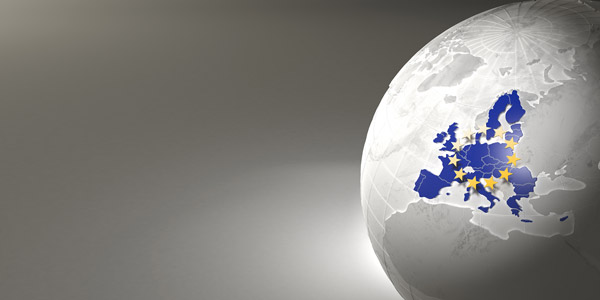Industry Research
New EUIPO Study: We Need to Step Up the Fight Against IPR Infringement
Published: June 14, 2019
Hadrien Valembois INTA Policy Officer, Europe

“The fight against IPR infringement needs to be strengthened,” emphasizes a new report by the European Union Intellectual Property Office (EUIPO). The report cites substantial loss of sales in the EU and growing health and safety concerns as a result of counterfeiting, and highlights the challenges in tackling this problem.
EUIPO published its 2019 Status Report on IPR Infringement: the importance of intellectual property rights, the infringement of intellectual property rights and the actions taken to combat it, on World Anticounterfeiting Day, June 6.
The report, published annually, acts as a synthesis of the findings of the research carried out in recent years by the EUIPO, through the European Observatory on the Infringement of Intellectual Property Rights (Observatory), on the extent, scope, and economic consequences of Intellectual Property Rights (IPR) infringement in the EU.
Main Findings:
- Contribution of IPR to the economy: The total contribution of IPR-intensive industries to the EU economy accounts for approximately 42 percent of gross domestic product (€5.7 trillion) and 28 percent of employment (plus another 10% in indirect employment effects in non-IPR intensive sectors).
- Negative impact on trade: IPR infringement in international trade in 2016 could reach as much as 3.3 percent of world trade. Up to 6.8 percent of EU imports, amounting to €121 billion per year, consist of fake goods.
- Losses in sales: Estimated lost sales in 11 sectors in the EU (directly in the industries being analyzed and across their associated supply chain), as a result of counterfeiting, went beyond €92 billion per year from 2012 to 2016.
- Incentives for counterfeiters: The main incentives for counterfeiters are the conjunction of abundant value, lenient sentences, and high returns on investment while making significant use of the Internet to distribute their products and to promote the distribution and consumption of illegal digital content.
- Incentives for consumers to purchases counterfeits: The incentives for consumers to purchase counterfeit goods lie in lower prices, easy accessibility, and a low degree of social stigma associated with such activities.
- Health and safety: These concerns are increasing as counterfeiting of everyday consumables such as cosmetics or medicines becomes more prevalent.
Challenges:
- Coordination of cross-border investigations and tackling new technologies that criminals are using to hide their locations and activities. In that regard, the evolution of the role of intermediaries to fight counterfeiting themselves appears of upmost importance. Indeed, the report says, “the rapid growth in e-commerce and the improvements in the speed and availability of high-bandwidth connections mean that intermediaries such as online retail platforms and video sharing sites are increasingly misused by infringers to market and distribute both counterfeit goods and copyright-infringing digital content.” The EUIPO is of the opinion that “those and other intermediaries, including providers of payment and logistics services, need to play a constructive role in the efforts to curb infringement of IP rights.”
- Closer coordination among EU institutions and bodies involved in the fight against IPR infringement; and
- Closer collaboration at the enforcement level and a simplified data exchange within the possibilities of data protection are essential elements in the effort to curtail this problem.
Responses and actions by the EUIPO, and the public and private sectors:
- Information: Providing rights owners with information on the changing infringement landscape. EUIPO”™s support in that matter needs to be “reviewed and adapted to the complex and changing IPR infringement landscape,” the report says.
- Concrete enforcement actions: Working with Europol on wider responses to IP crime, including participating in the funding of a specialized IP crime unit.
- Action in third countries: Supporting the European Commission”™s efforts to address the supply of counterfeit goods in non-EUcountries and to help small and medium-sized enterprises (SMEs) protect their IPRs.
- Public awareness: Providing citizens with information on the availability of legally accessible digital content and on the economic and social impact of purchasing counterfeit goods or accessing digital content illegally.
INTA advocates at the national and international levels to strengthen anticounterfeiting laws and enforcement, and to increase governments”™ cooperation to eliminate linkages between counterfeiting and organized crime, as well as serious threats posed by counterfeiting to the health and safety of consumers, economies, and national security.
In addition, the Association supports the development and passage of legislation, regulations, and trade agreements throughout the world that increase national and international enforcement mechanisms against counterfeiting. Through the organization”™s Anticounterfeiting Committee, the Unreal Campaign Committee, and partnerships with governments and other associations, INTA emphasizes the importance of strong anticounterfeiting measures and increased awareness of the harms of counterfeiting.
For more information, please visit INTA”™s Anticounterfeiting web page or contact INTA Manager, Anticounterfeiting Maysa Razavi at [email protected]; INTA Advisor Anticounterfeiting Tiffany Pho at [email protected]; INTA Advisor Anticounterfeiting, Asia-Pacific, Valentina Salmoiraghi at [email protected]; or INTA Policy Officer, Europe, Hadrien Valembois at [email protected] . For more information about the Unreal Campaign, contact INTA Associate, Strategic Partnerships & Unreal Campaign, Catherine Shen at [email protected].